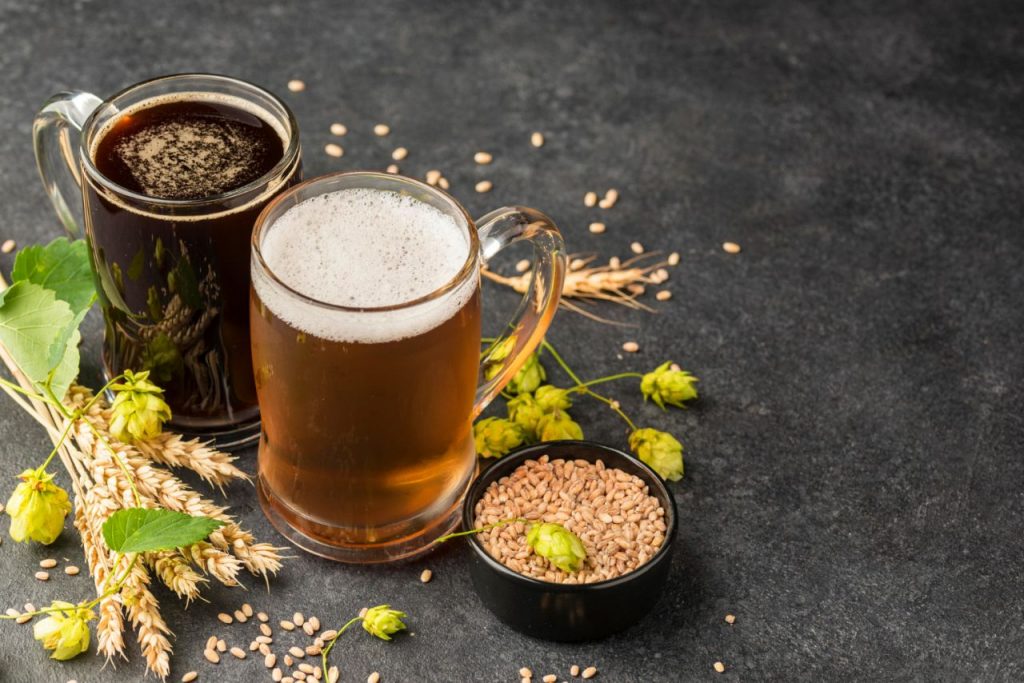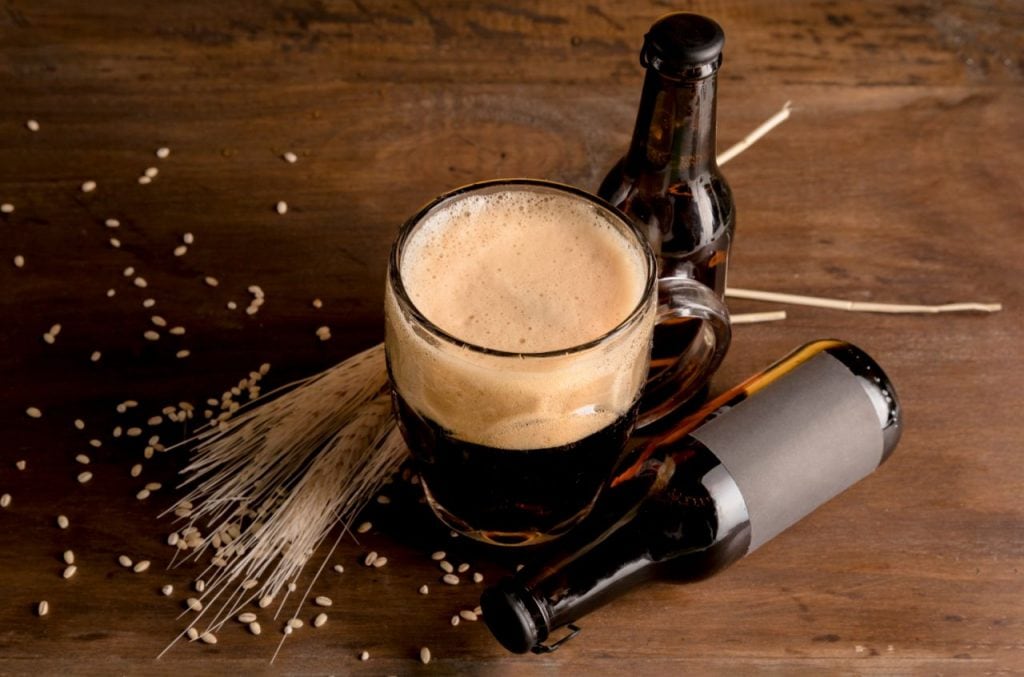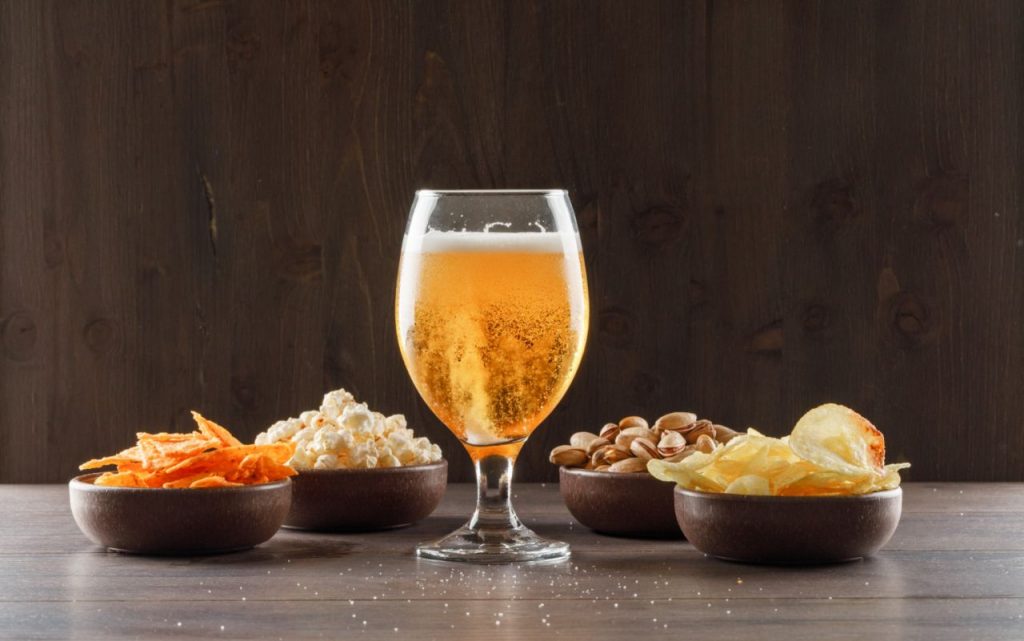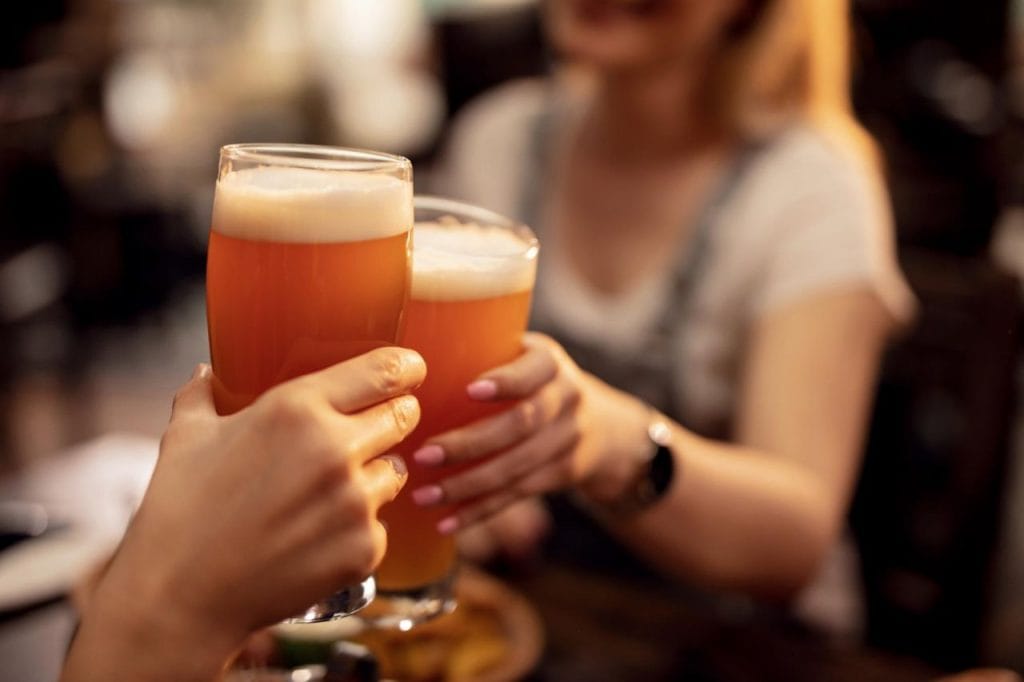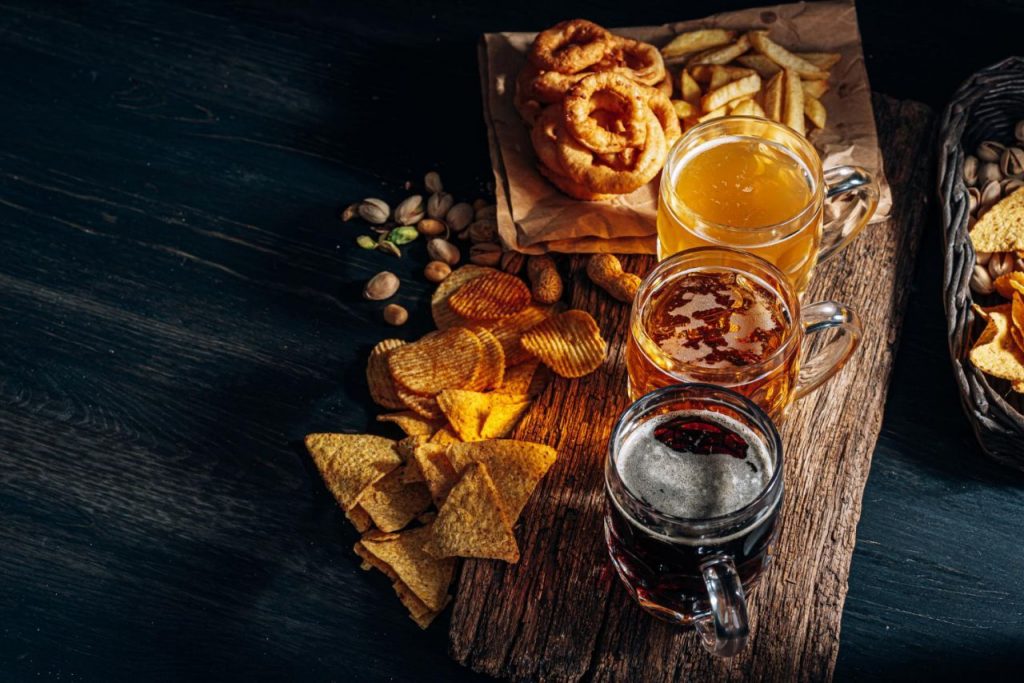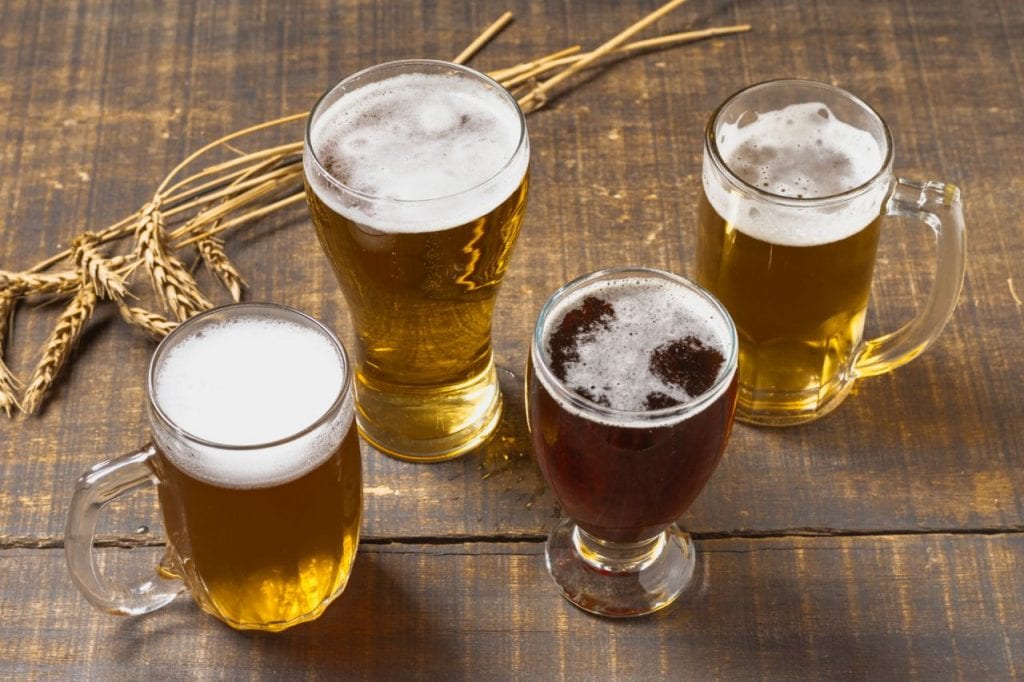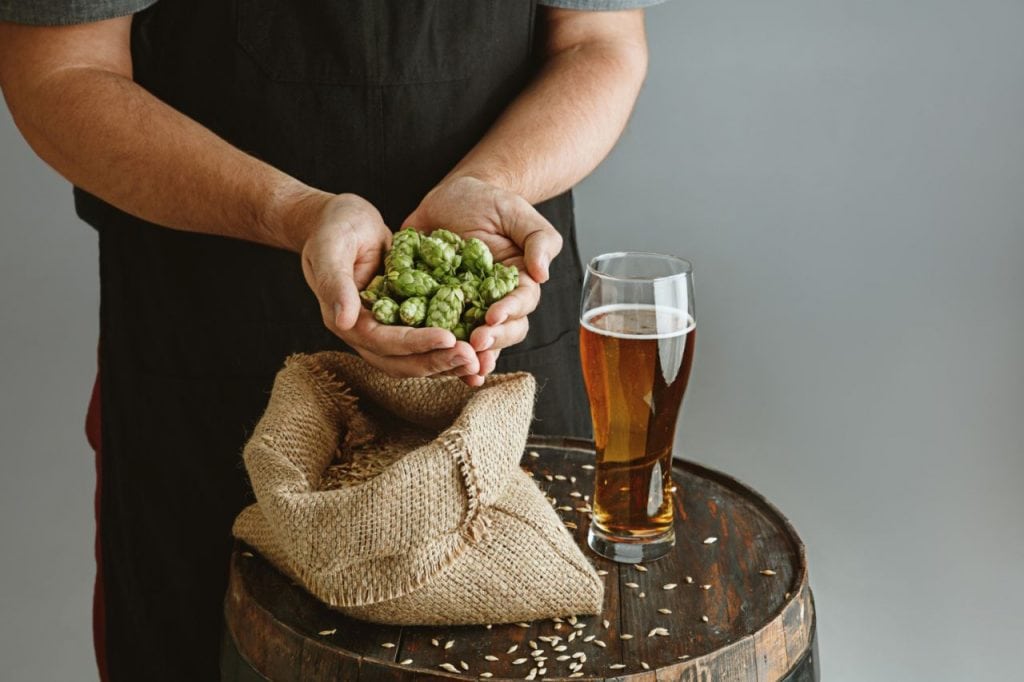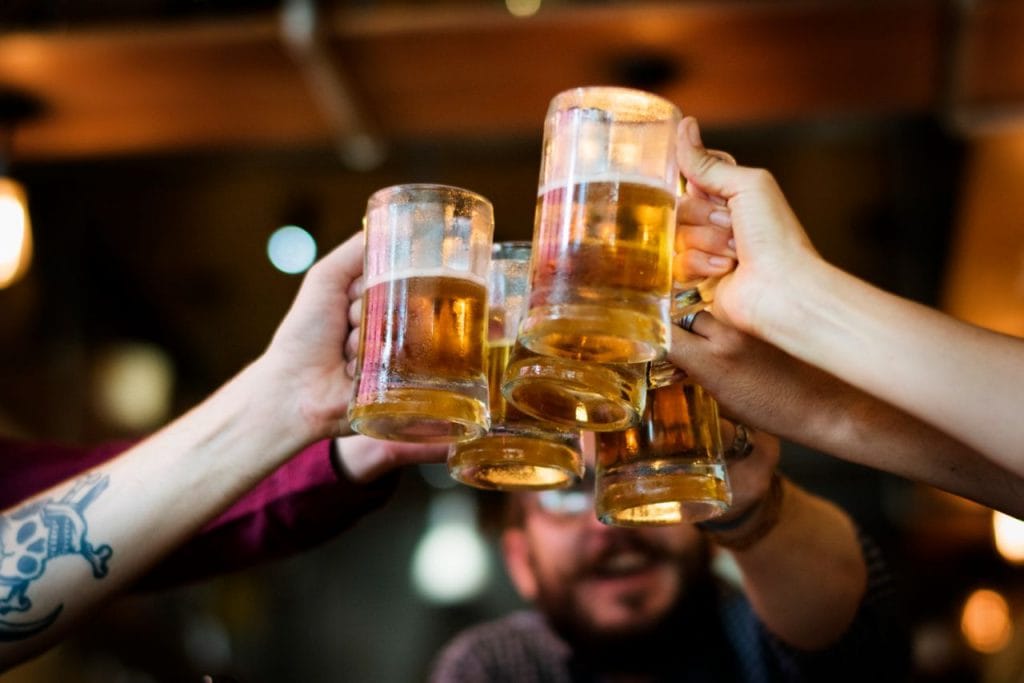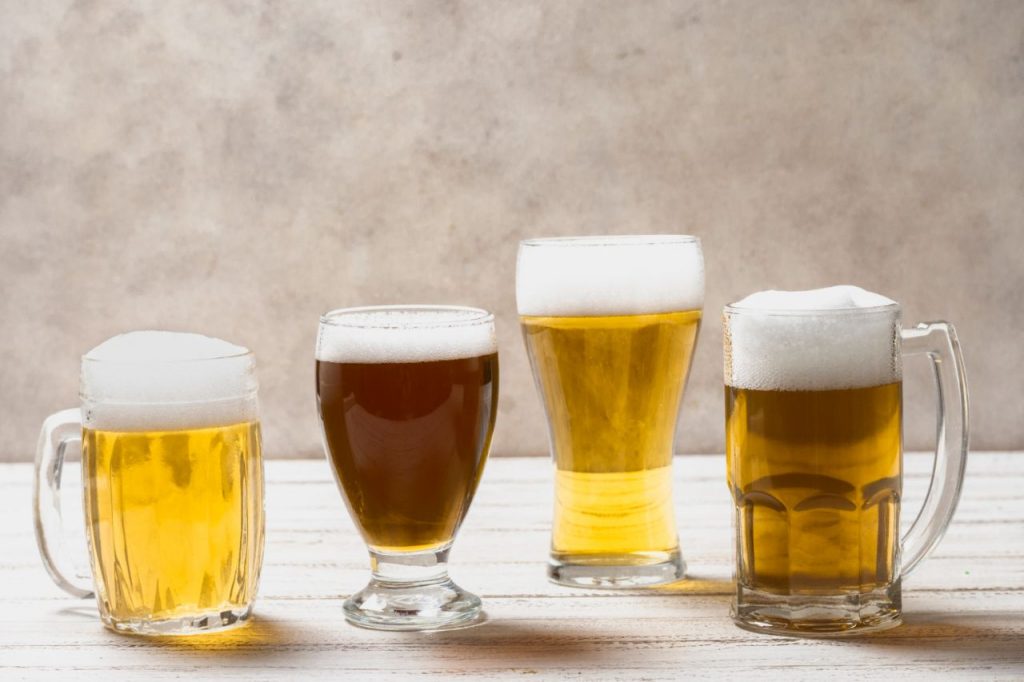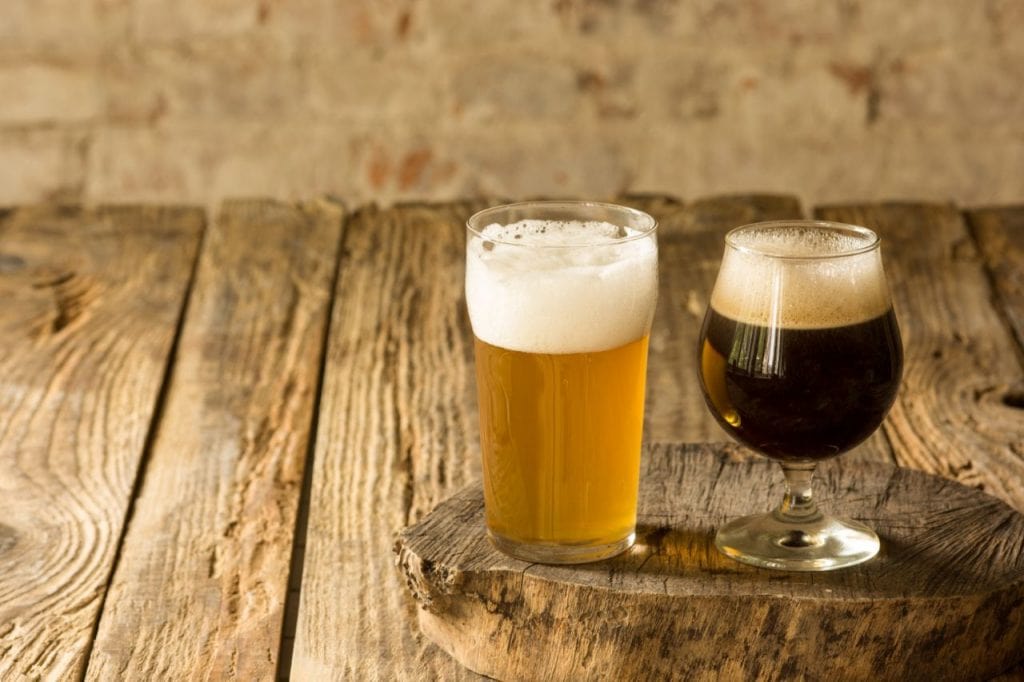Is beer good for you? Whether you're a casual drinker or a connoisseur, you've probably heard conflicting opinions. Well, it's time to put the rumours to rest and delve into the scientific facts.
We'll explore the benefits of beer consumption and answer the ultimate question–is beer really good for you? So, grab a cold one and let's get started!
Don’t forget to grab a drink at Tar Barrel! With our range of craft beers, ciders and spirits - all made on the Distillery Mornington Peninsula using only the freshest ingredients – you’re sure to find something amazing. So come join us at Tar Barrel for an experience like no other!
Why Drinking Beer Is Good For You
A moderate beer intake has been associated with health benefits in certain research. You can see why below.
When Compared To Other Alcoholic Beverages, Beer Has Some Health Benefits.
Although wine gets all the press for its antioxidant content, beer has many. Flavonoids in barley with hops are different from flavonoids in grapes.
Therefore, the specific antioxidants they provide are unique, although antioxidants, in general, are beneficial. Beer also has more protein plus vitamin B than wine. Moreover, beer is a good source of iron, calcium, phosphates, and fibre.
It Supplements Our Everyday Nutrition.
Beer is sometimes called "liquid bread," which suggests that many people consider it more of a food than a drink.
You'll understand if you've ever enjoyed a pint of Guinness. That also signifies the beverage has some beneficial nutrients, so be aware of how much you drink.
According to one study, beer's protein and B vitamins are higher than wine's. Beer has the same amount of antioxidants as wine. While both beer and wine include antioxidants, the flavonoids present in barley plus hops used to make beer are distinct from those found in grapes used to make wine.
Compared to wine, beer has more phosphorus, folate, and niacin (all B vitamins) than wine. There is a good amount of protein as well as some fibre in beer as well. Also, it's one of the few notable dietary sources of silicon, which has been shown to reduce the risk of osteoporosis.
It May Lessen Diabetes Risk.
Those who drink alcohol three to four times a week have a lower risk of developing diabetes than those who never drink, according to research published in the journal of the European Association for the Research and Treatment of Diabetes.
For example, men who drank between one to six beers weekly had a 21% decreased chance of developing diabetes compared to non-beer drinkers.
Heart Attacks Are Prevented By Beer.
Beer provides other benefits besides vitamins if you want something more cutting-edge. You're probably familiar with the French Paradox, which explains why the French have one of the lowest rates of cardiovascular illness in the developed world while eating a high-fat, high-alcohol diet and smoking unhygienic cigarettes made from goat hair.
The antioxidants in red wine have been blamed. Can you think of anything else that contains as many antioxidants as red wine? Black brew!
As stated by the Australian Centre for Heart Health, "there is no clear evidence that wine is more healthful than other forms of alcoholic consumption." Drinking alcohol in moderation, defined as no more than three drinks per day, has been shown in one study to reduce the danger of developing coronary artery disease by 24.7%.
Research has shown that drinking beer in moderation can reduce the risk of cardiovascular disease, heart attack, and stroke.
In addition, the moderate use of any alcoholic beverage, as shown by studies comparing the relative advantages of wine, beer, and spirits, is related to a lower incidence of cardiovascular disease.
Drinking Beer Can Help Avoid Painful Kidney Stones.
The risk of developing kidney stones is inversely proportional to beer consumption. Regular beer consumption reduced the risk of developing a stone by 41 per cent in both male and female, according to a recent study.
In addition, beers with a lot of hops, such pale ales, include a lot of phytochemicals that are good for your kidneys.
Drinking Beer Can Help Lower "Bad" Cholesterol.
Beer's soluble fibre content is credited with lowering levels of LDL, also known as "bad" cholesterol.
Raising your soluble fibre consumption can help you maintain healthy blood sugar and cholesterol levels, among other benefits. Yet, because it inhibits vitamin and mineral absorption, alcohol may reduce the body's ability to burn stored fat.
Drinking Beer Can Help Strengthen Your Bones.
Beer's high silicon concentration is useful for bone health. Orthosilicic acid (OSA), the soluble form of silicon in the diet, may have a role in bone and connective tissue development, growth, and maintenance and may even help lower the risk of osteoporosis.
Beer Is A Great Stress Reliever.
Two daily glasses of beer were shown to alleviate stress and anxiety in the workplace. Yet, alcohol consumption as a standard method of stress relief may have negative consequences.
The long-term damage outweighs the temporary relief of stress brought on by alcohol it can do by contributing to emotions of sadness and anxiety, which in turn make stress management more challenging.
Beer May Boost Memory.
Hops contain a hidden chemical called Xanthohumol, which has been shown to boost brain power. This flavonoid can slow memory decline. The chemical may prevent brain cell damage caused by free radicals, which has been linked to dementia.
(Note that the doses employed in the study were significantly higher than anything a human being could safely ingest in beer.)
Drinking Beer Improves Mental Agility.
Higher alcohol consumption was connected with enhanced performance in middle-aged participants.
Although these results don't necessarily support a rise in alcohol use, they do support the idea that even moderate drinking can improve mental performance.
To Relax, Nothing Beats A Cold Beer.
In a nutshell, the social aspects of drinking alcohol in moderation are good for your health. In other words, it's important to take some time off every so often to kick back with your pals and enjoy a cold one.
Beer's Safer Than Water.
If you're in an area where it's recommended to avoid drinking the water, the local beer is always a better option.
The local bottled water can't compare to how safe this is. Beer goes bad in obvious ways, which makes it hard to sell if it has yet to be boiled in the brewing process and maintained clean afterwards, all the way to the bottle being capped and sealed.
Beer cannot support the growth of pathogens (bacteria that could cause harm) even if it spoils. In other words, swill away; beer of any quality is preferable to water.
Beer Does Not Cause A Beer Belly.
Against common belief, there is no correlation between beer consumption and belly fat, according to a 2003 study.
Researchers noted a "common belief" that beer drinkers are, on average, more "fat" than nondrinkers or those who prefer wine or spirits. Nonetheless, they concluded that "the connection between beer and obesity, if it exists, is probably modest."
The vast majority of research shows that persons who drink beer regularly (and in moderation) not only don't get beer bellies but also have a lower body mass index than those who don't drink.
Alcoholic beverages, namely beer, have been shown to improve health and make people seem less like slobs by increasing their metabolism and blocking fat absorption. It can be part of a healthy diet if used in moderation.
It May Boost Brain Power.
The inclusion of silicon in the recipe also has some other advantages. It's beneficial for preventing cognitive decline due to exposure to chemicals.
This may explain why moderate beer drinkers have a 23% lower risk of developing Alzheimer's and dementia than non-drinkers, as researchers at an Australian university observed. Beer has also been demonstrated to increase good cholesterol, which improves brain blood flow.
The purchase of several pints may also prove helpful on trivia night. One study found that persons with a one- or two-beer buzz were faster at solving puzzles than sober people. Indeed, individuals were over 30% more likely to come up with a novel answer when they had been drinking.
It's A Great Way To Keep Your Teeth Clean.
Scientists have found that beer can prevent bacteria from developing and growing on your teeth, according to research published in the Journal on Biomedicine and Biotechnology.
When researchers examined the effects of beer extracts on the biofilm bacteria responsible for tooth decay and gum disease, they discovered that even the weakest extract from beer tested prevented the activity of these bacteria.
It was shown that extracts from beer were among the most effective at stopping bacterial development by disrupting bacterial communication.
They drank good ol' Guinness throughout testing, giving you yet another excuse to pretend you're an authentic Irishman the next time you hit the pub.
It May Help You Live Longer.
Moderate drinkers had a longer life expectancy than non-drinkers, according to research. However, do not see this as permission to drink excessively this weekend, as alcohol harms the body.
Although the judgement is still out, some evidence suggests that moderate beer consumption can increase longevity by improving cholesterol profiles, decreasing the likelihood of developing diabetes, and fortifying the cardiovascular system.
Conclusion
Is beer healthy to drink? Moderate beer consumption has been linked to health advantages, though opinions are divided on whether or not this is true.
Beer offers more beneficial nutrients than most alcoholic drinks, including iron, calcium, phosphates, and fibre. While both wine and beer contain antioxidants, the flavonoids in barley and hops are different from those in grapes.
Moreover, beer is one of the few noteworthy dietary sources of silicon, which has been demonstrated to lessen the incidence of osteoporosis, and it has more phosphorus, folate, and niacin (all B vitamins) than wine.
Study published in the journal of the European Association for the Research and Treatment of Diabetes found that those who drank alcohol three to four times per week had a decreased chance of acquiring diabetes than people who never drank.
The French Paradox explains why, despite consuming a diet high in fat and alcohol and smoking filthy cigarettes rolled in goat hair, the French have one of the lowest rates of cardiovascular sickness in the developed world.
Moderate beer consumption has been linked to a lower incidence of cardiovascular disease, heart attack, and stroke. Evidence suggests that consuming alcohol within recommended limits (no more than three drinks per day) can reduce the risk of getting coronary artery disease by as much as 24.7%.
Furthermore, research comparing the benefits of wine, beer, and spirits shows that moderate use of any alcoholic beverage is associated with a lower risk of cardiovascular disease.
Moreover, beer can help you avoid painful kidney stones, cut "bad" cholesterol, strengthen your bones, and even relieve tension. It has been demonstrated that drinking two beers each day can significantly reduce stress levels.
Scientists have discovered that a molecule in hops called Xanthohumol improves cognitive function and delays memory deterioration. Researchers found that middle-aged volunteers who drank more benefited from the effect, suggesting that even moderate alcohol use has a positive effect on cognitive function.
Having a cold beer is one of the best ways to unwind. Beer is preferable to water since it isn't contaminated by germs and is kept clean after production.
Most studies have found that frequent beer drinkers (who consume their brews in moderation) not only don't have beer bellies but also have a lower body mass index than non-drinkers.
Beer drinkers who keep their consumption to moderate levels reduce their risk of acquiring Alzheimer's disease by 23%, and those whose excellent cholesterol levels are raised by drinking beer have better brain blood flow.
Beer's antibacterial properties extend to protecting teeth from bacteria, with studies showing that even the weakest extract of beer inhibited bacterial growth.
Beer has been shown to improve cholesterol profiles, reduce the risk of developing diabetes, and strengthen the cardiovascular system, all of which contribute to a longer life span when consumed in moderation. Keep in mind that alcohol is harmful to the body, so don't go crazy this weekend.
Content Summary
- Okay, enough with the rumours and onward to the scientific truth.
- Our goal here is to address the big question: Is beer beneficial for you? by looking at the pros and negatives of drinking beer.
- There is some evidence linking a moderate beer consumption to positive health outcomes.
- Beer has more positive health effects than other alcoholic beverages.
- Despite wine's notoriety, beer really contains far more antioxidants.
- Beer, as comparison to wine, also contains more protein and vitamin B.
- Beer also contains useful amounts of nutrients like iron, calcium, phosphates, and fibre.
- Beer has been referred to as "liquid bread," implying that some people view it more as a food than a beverage.
- It also means it has some good for you nutrients, so watch how much you consume.
- One study found that beer has higher levels of protein and B vitamins than wine.
- Antioxidants in beer are on par with those in wine.
- Antioxidants can be found in both beer and wine, however the flavonoids in beer's barley and hops are different from the flavonoids in wine's grapes.
- Beer has more of the B vitamins than wine does, specifically phosphorus, folate, and niacin.
- Beer has a respectable quantity of protein and a little bit of fibre.
- As one of the few significant dietary sources of silicon, which has been found to lower the incidence of osteoporosis, it is also a healthful choice.
- You've certainly heard of the French Paradox, which describes how the French manage to have one of the lowest rates of cardiovascular disease in the developed world despite consuming a diet full in fat and alcohol and smokes rolled in unsanitary goat hair.
- Many people believe that the antioxidants included in red wine are to responsible for this.
- One study found that the risk of getting coronary artery disease might be lowered by 24.7% if people drank alcohol in moderation (defined as no more than three drinks per day).
- Beer has been demonstrated to lower the risk of cardiovascular disease, heart attack, and stroke when consumed in moderation.
- Beer consumption has been linked to a reduced risk of developing painful kidney stones.
- Inversely related to beer intake is the risk of kidney stones.
- Hop-heavy beers, including pale ales, also have plenty of kidney-friendly phytochemicals.
- Beer consumption has been associated with reduced levels of "bad" cholesterol.
- Increasing your intake of soluble fibre has many health benefits, including supporting normal blood sugar and cholesterol levels.
- The dietary soluble form of silicon, called orthosilicic acid (OSA), may aid in bone and connective tissue development, growth, and maintenance and perhaps reduce the incidence of osteoporosis.
- Having a beer may help you remember things.
- Hops have been demonstrated to increase cognitive ability thanks to a substance called Xanthohumol.
- Memory loss may be slowed by this flavonoid.
- Middle-aged participants who drank more alcohol reported better results.
- Though these findings don't indicate that more people should drink, they do lend credence to the premise that light to moderate alcohol consumption can boost cognitive function.
- Alcohol's social benefits, in moderation, are beneficial to health.
- That is to say, every so often, you should stop what you're doing and go have a beer with your pals.
- As opposed to water, beer is much less likely to cause illness.
- Always opt for the local beer over the water if you're in a region where it's been advised you should.
- As far as purity goes, this is leagues above anything sold in local stores.
- To rephrase, feel free to guzzle beer of any quality rather than water.
- A beer belly is not caused by drinking beer.
- The popular belief that drinking beer leads to belly obesity is disproved by a study from 2003.
- Beer drinkers are stereotyped as being heavier than nondrinkers or those who prefer other alcoholic beverages, according to the study's authors.
- To counteract chemical-induced memory loss, this is helpful.
- Researchers at an Australian university found that moderate beer drinkers had a 23% decreased chance of acquiring Alzheimer's disease and other forms of dementia compared to non-drinkers.
- Beer raises HDL cholesterol, which raises cerebral blood flow.
- Buying a few drinks could be useful on trivia night as well.
- A study indicated that participants who had had one or two beers were able to solve puzzles at a faster rate than those who were sober.
- It's an excellent method for maintaining dental hygiene.
- According to studies published in the Journal of Biomedicine and Biotechnology, beer can stop germs from forming and multiplying on your teeth.
- A study conducted on the biofilm bacteria responsible for tooth decay and gum disease found that even the weakest extract from beer studied inhibited the activity of these bacteria.
- Beer extracts were found to be highly effective at inhibiting bacterial growth by interfering with bacterial communication.
- Scientific studies found that moderate drinkers lived longer than non-drinkers.
- Do not take this as an excuse to immoderately imbibe this weekend, though, as alcohol is toxic to the body.
- Although the jury is still out, there is some evidence to suggest that beer consumption in moderation can extend longevity by improving cholesterol profiles, reducing the probability of developing diabetes, and strengthening the cardiovascular system.
Frequently Asked Questions
Studies have shown that moderate beer consumption can have positive effects on heart health, such as reducing the risk of heart disease and stroke.
Beer can help hydrate the body to some extent, but it's not as effective as water. It's important to drink plenty of water still, especially when consuming alcohol.
While beer is high in calories, moderate consumption is not necessarily linked to weight gain. However, excessive beer consumption can lead to weight gain and other health problems.
Moderate beer consumption has been linked to reducing stress and anxiety and potentially improving mood. However, excessive consumption can have negative effects on mental health.
Moderate beer consumption has been linked to various health benefits, including reducing the risk of certain diseases and improving bone density. However, excessive consumption can lead to negative health effects. Consuming beer in moderation and as part of a balanced lifestyle is important.




